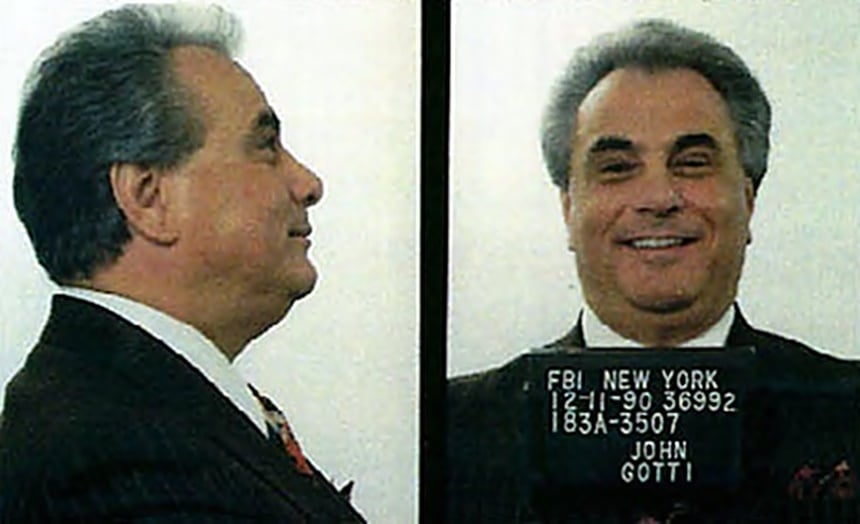With the indictment of former President Donald Trump and 18 other named co-defendants for their efforts to overturn the 2020 election, the words “RICO” and “racketeering” have been popping up in the news, leaving many wondering just what sort of crime is being described.
RICO stands for the Racketeer Influenced and Corrupt Organizations Act, a 1970 federal law that was a major development in the war against organized crime.
The original focus of the RICO statute was to thwart criminal enterprises, specifically mob bosses. Before RICO, organized crime leaders could insulate themselves from prosecution. Police would arrest their subordinates — the drug dealers, thieves, and other crooks on the streets working for them — but could never pin a specific crime on the bosses themselves. Nor could they seize illegal funds, which mob bosses hid in shell corporations. There was no way to establish a firm connection between the crime and the culprit within a corporation. Prosecutors could charge one low-level mob member for a particular crime, but they were powerless to dismantle the organization behind him. And the organization was what made the racket — referred to in court as “the enterprise” — work.
Then came the RICO statute, passed in 1970, which broadened the abilities of prosecutors to enforce racketeering laws. Racketeering refers to a range of crimes, such as fraud, extortion, bribery, and threats committed for repeated profit, in the disguise of a legitimate business. The RICO law allowed the courts to prosecute a number of individuals for separate acts, some of which appeared unrelated, as part of a criminal conspiracy. They could even be charged without proof they were personally involved in criminal activity; prosecutors only needed to show they were part of an enterprise that conducted such activity.
Every RICO case is based on “predicate offenses” — crimes that are components of a larger crime. The defendant has to commit at least two of these offenses within 10 years to show “a pattern of racketeering activity.” These offenses include everything from gambling and forgery to kidnapping and murder.
The defendant doesn’t have to know what everyone else in the enterprise was doing. According to the criminal resource manual from the Department of Justice, prosecutor only needs to show that the defendant:
- agreed to commit the substantive racketeering offense through agreeing to participate in two racketeering acts
- knew the general status of the conspiracy
- knew the conspiracy extended beyond the defendant’s individual role.
A Supreme Court decision in 1985 raised the standard for federal RICO prosecutors. It is no longer sufficient for prosecutors to prove these activities alone. They must now demonstrate a “relationship” to a criminal enterprise and hold the “threat of continuing activity.” This is referred to at a Pattern of Racketeering Activity (PORA). The predicate offenses can be shown to relate to a criminal enterprise if they furthered its goals, supported the enterprise, were committed on behalf of the enterprise, or showed similar purposes, results, participants, victims, or methods.
Penalties under the RICO statute include prison sentences from 20 years up to life. There are also severe financial penalties. Fines can reach a quarter of a million dollars, or twice the amount earned from criminal activity.
Today, 33 states have passed their own version of RICO statutes. They generally follow the federal model, but Georgia is different. It doesn’t require a long record of criminal enterprise for an indictment. And while federal courts list 35 predicate offenses, George cites quite a few more. Federal prison sentences go as high as 20 years, with no minimum. Georgia has the same maximum, but its lightest sentence for racketeering is five years.
In a 98-page indictment, the state of Georgia has charged former President Trump and 18 co-defendants with “knowingly and willfully” conspiring to change the outcome of the election in his favor. “That conspiracy contained a common plan and purpose to commit two or more acts of racketeering activity” both in Georgia and other states. Among the charges are creating false claims of fraud, harassing election workers, creating an alternate, Trump-friendly slate of electors to be replace the official electors, and pressuring officials to come up with more votes.
The District Attorney bringing the charges, Fani Willis, has won several unique RICO cases in the past. In one, she used racketeering law to convict Atlanta educators who had inflated students’ scores on standardized tests for money. She also prosecuted a rap star and a street gang, introducing rap lyrics and postings on social media as evidence, to convict them of criminal conspiracy. Regardless of the outcome, the Trump case will be precedent-setting.
Become a Saturday Evening Post member and enjoy unlimited access. Subscribe now




Comments
Comparing the trimped-up charges against President Trump with those falling under the RICO act is like comparing apples with oranges. They are not the same. Being a left-leaning periodical you might hope them to be but you’ll soon learn what I am saying is right in the judgement of the US Supreme Court.
Although I had a working knowledge of the RICO statute, I learned a lot more about it here, now, reading this. What happens in the days ahead to former President Trump as this continues to play itself out remains to be seen of course. Judging though from how this things have gone so far, one thing does seem likely regardless of how anyone feels: that the 45th President will also be the 47th.